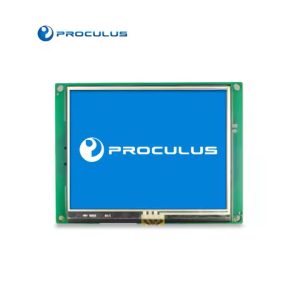Precautions for the Use of LCD Module
Ⅰ. What is the LCD module?
LCD module refers to the LCD display product that integrates glass and LCD driver. It provides users with a standard LCD display driver interface (with 4 bits, 8 bits, VGA and other different types), and users can operate in accordance with the interface requirements to control the correct display of the LCD.
Ⅱ. Precautions for LCD module
1. The liquid crystal display module display is made of glass. Do not apply mechanical shocks, such as falling from a height.
2. If the LCD display module is damaged and the internal liquid crystal leaks, do not let it enter the mouth. If it gets on clothes or skin, wash it off quickly with soap and water.
3. In order to reduce the generation of static electricity for the LCD module, do not perform assembly and other work in a dry environment.
4. The liquid crystal display module has a layer of film to protect the display screen. Be careful when removing this protective film, because static electricity may be generated.
5. The liquid crystal display module should minimize electrode corrosion. Water droplets, moisture condensation, or current in a high-temperature environment may accelerate electrode corrosion.
6. When the liquid crystal display module is at a low temperature (below the storage temperature range), the solidification of the liquid crystal will cause directional defects or produce bubbles (black or white). Air bubbles are also generated when the liquid crystal display module is vibrated strongly at low temperatures.
7. If the LCD module works for a long time and displays the same pattern, the pattern will remain on the screen like a phantom and there will be subtle contrast differences. If you want to regain normal working condition, you can temporarily stop using it for a while. It is worth noting that this phenomenon will not have an adverse effect on the reliability of the performance.

 English
English


